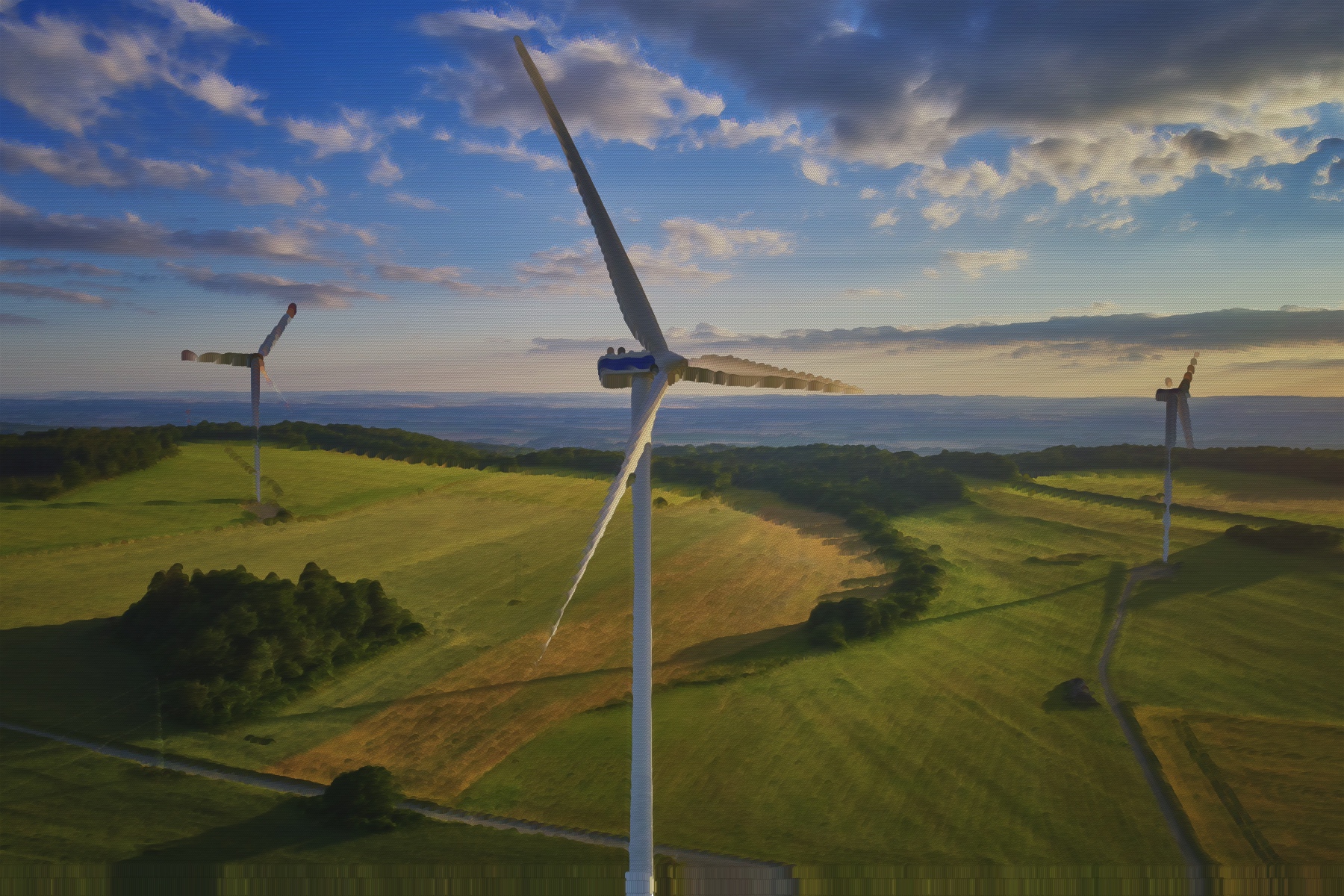Five Reasons To Be Hopeful About Climate Action in 2025

Beyond the terrifying headlines, gritty, ground-breaking, and energizing climate solutions continue to drive change



30 January 2025
SSG staff work with inspiring and thoughtful changemakers across the Americas every day—it’s one of many reasons we’re hopeful about reducing pollution and building climate resilience in 2025.
We are on the heels of the warmest year on record: devastating wildfires have hit California, a hail storm caused C$2.8 billion of damage in Calgary, and wildfires scorched Jasper (to name a few of many disasters). Now, the current US administration is dismantling climate action policies. We’re here to remind you that the headlines only paint a partial picture of the climate crisis. Across the Americas, SSG staff work with people dedicated to making their communities more resilient to extreme weather and reducing emissions and pollution. Below, we share five reasons to remain hopeful about what we can accomplish together in 2025.
1. Local governments are committed to staying the course.
This can’t be emphasized enough. Local governments are stepping up where their national counterparts are not. We need look no further than the US, where Trump is attempting to dismantle climate policies, including decades-old efficiency standards. After Trump abandoned the Paris agreement in 2017, a dozen U.S. states and over 200 American cities committed to working toward the Paris targets. This time around, 24 governors—representing over half the US population—have promised they will continue to work toward the Paris goals.
With so many actors committed to reducing emissions, along with a host of legal complications, backtracking climate action policies is not straightforward and, we hope, the efforts will not be as far-reaching as Trump’s declarations intend.
(Amy Turner, Director of the Cities Climate Law Initiative at Columbia Law School, breaks down some key takeaways on Trump 2.0 for American cities here.)
And local action isn’t just an American trend. We see similar divisions in Canada: certain Canadian provinces’ are taking little climate action or opposing it altogether, in contrast to forward-thinking regional and municipal governments within those jurisdictions. Worldwide, subnational governments are playing increasingly significant roles in climate action and have a growing presence and influence at UN climate conferences.
2. Momentous climate legislation is shaping the climate conversation in Latin America.
A number of Latin American governments, including Chile, Colombia, and Costa Rica, have passed ambitious climate legislation or approved binding strategies that require all levels of government to take steps to mitigate the climate crisis. Our Chilean colleagues are keeping an eye on these developments, including their own national governments’ efforts to catalyze local climate action.
In 2022, Chile passed a landmark law that requires every municipality to develop a climate action plan. Dozens of them are racing to create local climate action plans by June 2025. The requirement has already triggered important conversations around climate action in Chile. Now, climate mitigation and adaptation are discussed on a daily basis at the local-government level. The law also requires municipalities to engage interested and affected parties in the development of climate action plans, which has promoted discussion around greening a variety of economic sectors. Moreover, about 40% of Chilean municipalities have climate action plans in place—a huge jump from just two years ago.
Reinforcing its leadership in climate action, Chile is attracting increased foreign investment in renewables, expanding green jobs, and promoting climate justice with a gender approach. The country is also advancing electric vehicle adoption, driven by clean energy storage innovations.
What can other places learn from this? According to Andres Pica Tellez, a former SSG-er who now heads the Climate Change Division in Chile’s Ministry of Environment, effective climate action policy requires shifting the way people think. Chile’s Climate Change Framework law accomplishes this by requiring pretty much every branch of government, small and big, to integrate climate considerations into its work. It’s “like a country development law,“ explained Andres in an interview last year.
3. Renewables have hit their stride.
Local government efforts will benefit from the global boom in renewables. In fact, we’re at a tipping point: according to projections from the International Energy Agency, renewable electricity is set to overtake coal-fired electricity globally this year. As technology improves and prices drop, renewables are on track to outcompete fossil fuels in many locales.
Take British Columbia: the provincial energy company, which offers some of the cheapest residential electricity in North America, is boosting its energy capacity with nine wind energy projects. The urgent need to build resilience to extreme weather also makes renewables an attractive investment as they can support decentralized energy systems that are less vulnerable to severe storms and other extreme weather.
4. Cities are moving past planning into implementation.
After years of working on climate action plans (we made one of North America’s first comprehensive climate action plans for North Cowichan, British Columbia, in 2012), we’re seeing implementation gain momentum. More and more communities are wrestling with the work of rolling out the projects detailed in their climate action plans.
The efforts span all sectors: building EV-charging networks, performing building energy efficiency retrofits through city-led programs, installing renewable energy generation, creating biking and transit infrastructure—these and many other projects are moving us toward a greener, fairer world. To be sure, these projects are full of challenges, fits and starts, and frustrations—but that’s part of the deal when you’re challenging the status quo and figuring out a new way of doing things. These challenges make up some of our most satisfying work.
5. We’re seeing more integrated climate mitigation and adaptation plans.
Synergies abound between what’s required to reduce climate pollution and prepare our communities for the climate crisis. Retrofitting homes for energy efficiency can help reduce pollution while making them more comfortable during heat waves and cold snaps. Preserving wetlands helps ensure they keep absorbing carbon dioxide while providing a natural barrier against floods. The list goes on …
Even so, many governments have typically developed climate mitigation and adaptation plans separately. With the climate crisis on our doorsteps and the urgency of action to make it less severe, more and more local governments are looking to tackle both elements together. Not only does this make planning more efficient, it also helps make a more compelling case for action.
Last year, the City of Kelowna, British Columbia, adopted the Climate Resilient Kelowna Strategy. We worked with the City to conduct an integrated analysis to design actions that simultaneously accomplish mitigation and adaptation goals. For example, measures to increase Kelowna’s urban tree canopy will clean the air, help with stormwater absorption, provide shading to decrease the urban heat island effect, and reduce how much energy buildings need to cool in warm temperatures. Kelowna is also accelerating energy efficiency standards in new buildings while making them more resilient to climate impacts—important for an area that is prone to drought and wildfires.
And a bonus: it’s the Year of the Co-op!
The United Nations has declared 2025 to be the International Year of Cooperatives, recognizing the transformative potential of this business model to steer humanity towards achieving the UN’s Sustainable Development Goals. SSG is structured as a co-op because we believe organizations should be governed by people, not wealth. In co-ops, membership—not shares—determines governance rights, empowering members to move from being passive recipients to active creators of an economy that serves their needs.
We’re thrilled that cooperatives are getting time in the international spotlight. Ownership, democratic participation, and fair labour practices achieve just and equitable outcomes for everyone. Hire, work with, buy from, and join co-ops whenever you can!
Contact Us
Have questions about our services or want to know more about how we can help you?





